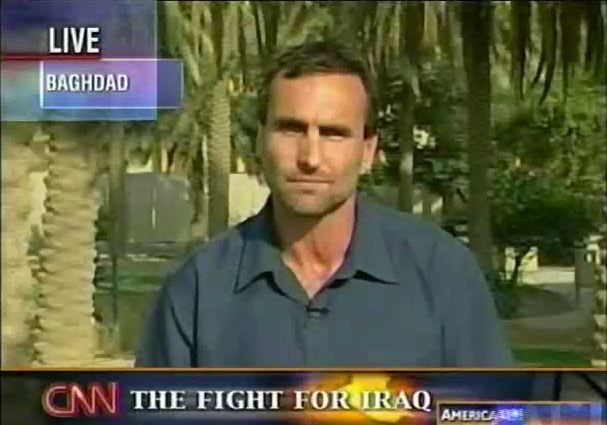AAM: Press conference wrap-up

Click photo to play
Length: 3:35
MILES O'BRIEN: Let's get right to Baghdad now. Our Michael Ware is there.
Michael, for the top general in Baghdad to at least put the prospect of additional troops on the table, that seems like it's a little bit of a shift.
MICHAEL WARE, CNN CORRESPONDENT: Well, it is. I mean, the president, the administration's position has always been, if they ask for it, they shall get it. However, the commanders here on the ground, the generals of the multinational force in Iraq, have maintained that they have the forces they need to do the job as it currently stands.
They've always left the doors open just a nudge. Perhaps now we're starting to see them peek through that small gap in the doorway.
But essentially, by and large, the outtake of this press conference from both Ambassador Khalilzad and General Casey is that they still believe that the Iraq mission is not only salvageable but can succeed, and within -- as Ambassador Khalilzad said -- reasonable timetables. They then laid out their expectations, America's expectations for what Iraq and the Iraqi government must deliver. They outlined a series of benchmarks that they expect this government to meet.
However, they're many of the same things we've heard time and time again: rolling back de-Ba'athification, engaging with the insurgency, tackling the militias. These are all things we've heard over and over again without any result. It's more wind so far.
We also saw Ambassador Khalilzad pointedly target the role being played by the regional actors here, Syria, and particularly Iran. He directly linked them, yet again, to the violence here in Iraq, funding and supporting that violence, looking to destabilize the U.S. mission. So he very much ramped up and reinforced the rhetoric on these external actors, all the time saying that what happens in Iraq is vital, profoundly important to the region, to American security, and to global security.
But at the end of the day, the one question that went unanswered is, "or what?" If these Iraqi partners -- who have proven to be weak, who don't share American interests or are actively opposed to American interests here in Iraq -- do not step up to the mark, as Ambassador Khalilzad, what will happen? That was not said -- Miles.
M. O'BRIEN: Well, and they -- but what was said is that they do not have any direct conversations -- the U.S. does not have any direct conversations with the Mahdi army, Muqtada al-Sadr, the leader.
To what extent is Muqtada al-Sadr dealing with this fledgling Iraqi government? Or is he really operating on his own at this point?
WARE: Well, Muqtada is always Muqtada's own man. I mean, U.S. military intelligence, for example, believes that he's receiving millions of dollars a month from Iranian sponsors. Yet, even if that's true, and true to that extent, the Iranians themselves would have difficulty dealing with Muqtada. He's his own player.
However, he effectively is underwriting the prime ministership of Nouri al-Maliki. That gives him a huge stake and a huge say.
Now, the Americans so far have appeared to be incapable of taking Muqtada on militarily or politically. And there was nothing new in today's press conference that would suggest that that's about to change -- Miles.
M. O'BRIEN: Michael Ware in Baghdad.
Thank you very much.
Reflecting somewhat the status quo there in that news conference.
